Search
Did you mean: Elam?
Search Results
![Illegally Excavated Mesopotamian Clay Tablet [3]](https://www.worldhistory.org/img/c/p/360x202/7101.jpg?v=1771874964)
Image
Illegally Excavated Mesopotamian Clay Tablet [3]
This clay tablet was illegally excavated. The precise provenance of the excavation is unknown, but probably from Southern Mesopotamia, modern-day Iraq. It is currently housed in the Sulaymaniyah Museum, Iraqi Kurdistan.
![Illegally Excavated Mesopotamian Clay Tablet [11]](https://www.worldhistory.org/img/c/p/360x202/7094.jpg?v=1771874954)
Image
Illegally Excavated Mesopotamian Clay Tablet [11]
This clay tablet was illegally excavated. The precise provenance of the excavation is unknown, but probably from Southern Mesopotamia, modern-day Iraq. It is currently housed in the Sulaymaniyah Museum, Iraqi Kurdistan.
![Illegally Excavated Mesopotamian Clay Tablet [9]](https://www.worldhistory.org/img/c/p/360x202/7102.jpg?v=1599475503)
Image
Illegally Excavated Mesopotamian Clay Tablet [9]
This clay tablet was illegally excavated. The precise provenance of the excavation is unknown, but probably from Southern Mesopotamia, modern-day Iraq. It is currently housed in the Sulaymaniyah Museum, Iraqi Kurdistan.
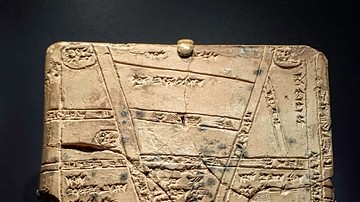
Image
Babylonian Clay Map from Nippur
A Babylonian cuneiform tablet with a map of the fields, towns and palaces around Nippur. Kassite Period, 1550-1450 BCE. Nippur, Iraq.
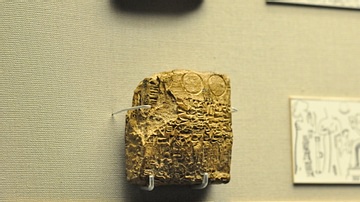
Image
Unopened Clay Tablet Envelope from Kultepe
The cuneiform text on the center of this unopened envelop narrates a loan of silver to a husband and wife. The envelop is marked by rings and cylinder seals used by the diverse community at the city of Kultepe. There are 3 scenes; Babylonian...
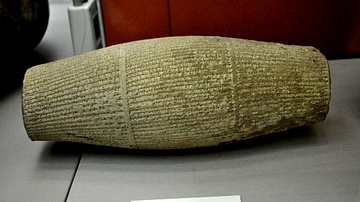
Image
Terracotta Clay Cylinder of King Nebuchadnezzar II
The three columns of cuneiform inscriptions on this cylinder mention the building and reconstruction of various shrines, quays, gates, and processional boats by king Nebuchadnezzar II at Babylon for the Babylonian New Year Festival. From...

Image
Death of Alexander Clay Tablet
This is a diary of astronomical and meteorological phenomena observed during the 2nd month of the years 323-322 BCE. Written in cuneiform inscription, it records the death of Alexander on the 29th day of the lunar month. The author describes...
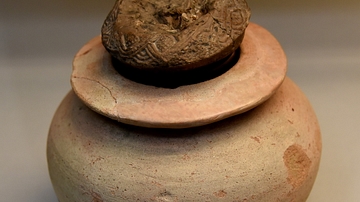
Image
Sealed Clay Jar Stopper
Two officials certified the contents of the jar that was sealed with this stopper. Impressions of fingers and a thumb are visible on the top. The stopper is displayed here on a similar jar dating from about the same period. Jemdet Nasr period...
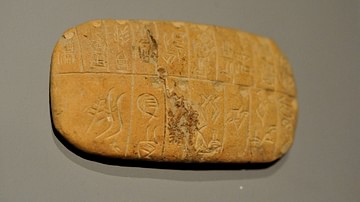
Image
Economic Clay Tablet
This tablet contains a list of goods. From Mesopotamia, Iraq. Early dynastic period, 3rd millennium BCE. The Sulaimaniya Museum, Iraq.
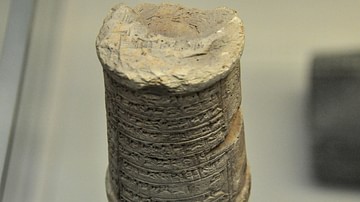
Image
Fired clay Cylinder Mentioning Amar-Sin
Scholarly copy of writings on a brick of Amar-Sin (Amar-Suen), a neo-Sumerian king who reigned between 2040-2036 BCE. The copy was written in the time of Sin-balassu-iqbi, governor of Ur during the reign of Ashurbanipal II, 675-655 BCE. From...